How to Know If It's Anxiety or Just Stress


I say it all the time: "This is giving me anxiety." What I often mean, however, is something slightly different: "This is stressing me out." As someone who has actually been diagnosed with chronic anxiety, I should probably know better than to conflate the two. And yet, I know just in conversing with my friends and co-workers on a daily basis that among my generation, using the words "stress" and "anxiety" interchangeably has become the norm.
While it might seem like a matter of semantics, in reality, it's a problematic habit. For one thing, using "anxiety" as a replacement term for "stress" diminishes the very real symptoms that those who suffer from anxiety have to negotiate on a daily basis. For another, it might prevent someone who has undiagnosed anxiety from seeking the correct kind of treatment because they can't differentiate those symptoms from that of regular, day-to-day stress.

"Both stress and anxiety can bedevil anyone's psychological and physical health," says Heather Silvestri, PhD, a New York City–based psychologist. "However, while often related, they are distinct phenomena." Below, she helps us clear up the difference between the two—and how to manage both.
What's the difference between anxiety and stress?
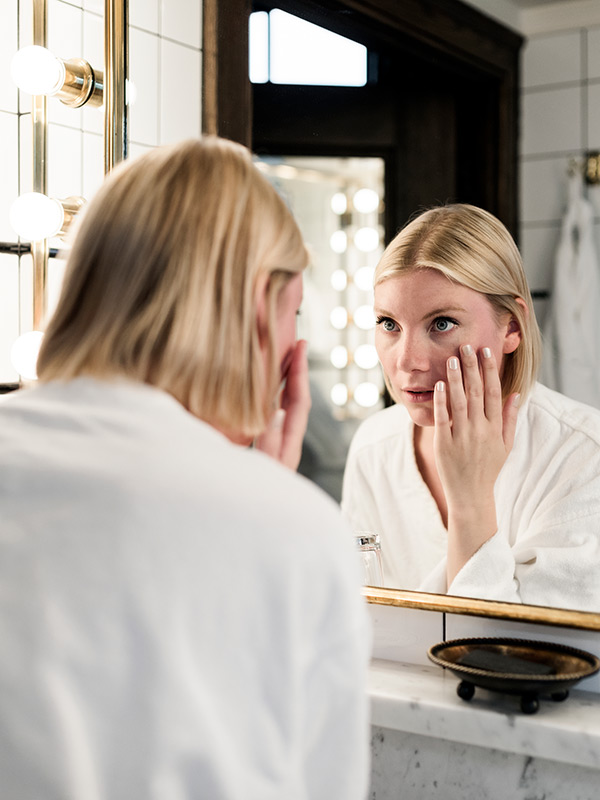
Let's start with stress, which typically refers to a situational experience. "It's a physiological and psychological response to a stressor, which is often obvious and explicitly identified," says Silvestri. A crazy day at work, a traffic jam, a looming presentation—these can all be sources of stress and can all cause your cortisol levels (also known as the "stress hormone") to spike. You probably know the symptoms of stress pretty well: anything from sweaty palms to a racing heart to butterflies in your stomach.
But here's the key thing about stress: When the source of your stress is resolved, those symptoms tend to go away. That's not the case with anxiety.

"With anxiety, the internal disquiet stubbornly persists, without heeding the actual conditions," explains Silvestri. In other words, those who suffer from generalized anxiety experience those same stress-like symptoms on a chronic basis, no matter the external circumstances. That's why anxiety often feels inexplicable or "out of proportion" to what's going on in our lives.
"Stress responses are hard-wired into our nervous system because we need them to survive," says Silvestri. "Anxiety can be seen as the lingering upheaval that doesn't necessarily quiet down when the situation improves. In this way, anxiety is the horse that ran away from the stable."
Why are they used so interchangeably?

Silvestri suspects a few factors, not the least of which is our current political landscape and the breakneck pace of the digital age—both valid sources of stress and fear. It's our new norm, which certainly impacts the way we talk about it. "Our modern lexicon has absorbed this idea and it now trades in terms connoting fear, anxiety, and neurotic apprehension," she says. "You might even go so far as to argue that there has been a glorification of internal unrest insofar as proclaiming, 'I'm so stressed out!' or 'I'm freaking out!' have a certain cache, as if such frenetic nervous system activity means someone is doing something important or notable."
This, she says, has led to misuse of both terms, as well as a lapse in distinction between the two. "This is lamentable because stress and anxiety can be sources of substantial suffering, and they are best treated with nuance and precision about what they are and how they operate," she adds. "Nowadays we also run the risk that someone may be delayed or miss out entirely on getting needed help because they mistake their clinically treatable anxiety disorder for a more normalized and watered-down idea of being 'stressed out.'"
Can one lead to the other?

"Chronic stress can absolutely give way to anxiety," says Silvestri. "We need rebound time to recover. When we experience chronic stress, we lose our ability to recover, and elevated physiological arousal becomes the new normal." If you're perpetually stressed, turning off that "switch" and finding relief becomes more difficult.
That's why with anxiety, we tend to scan for things that might be worrying us when there aren't any obvious stressors at a given moment—kind of like a self-fulfilling prophecy. But the good news is that there are many ways to manage both chronic stress and generalized anxiety.
How can I nip stress in the bud?
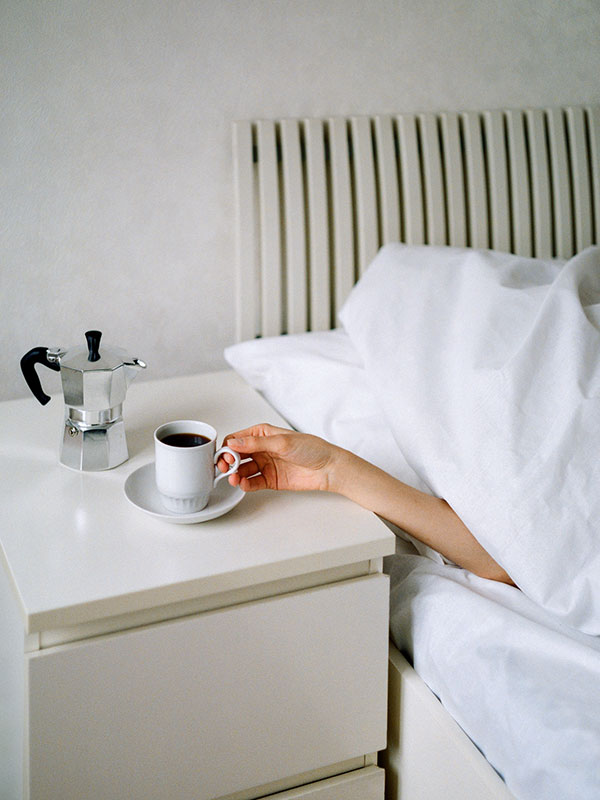
Honestly, a lot of it is reflecting and figuring out what works for you. If you know that nothing clears your head like a sweaty jog, make time for that. If you notice that stress feels much more manageable when you get a good night's sleep (as tends to be the case for most of us), be sure to get plenty of shut-eye when you know you're about to be put in a stressful situation. Being both self-aware and proactive is key.
How do I know if I have anxiety, and what can I do about it?

"If someone continues to feel preoccupied after a stressor has resolved or if the course of the worry doesn't really track external events, this can be a sign that something more significant than generic stress is going on," says Silvestri. This recognition is the first step. "By acknowledging your anxiety, you can be more mindful of triggers and more purposeful about your choices," she says.
Also, know that it'll be much easier and more efficient to treat your anxiety if you can approach it with curiosity instead of judgment. Then, you can start to play around with different rituals to manage it: Silvestri suggests starting with common aids like yoga, mindfulness, and journaling. "Really, any activity of self-care that lends a sense of agency to your lifestyle," she says, since anxiety can rob us of our sense of control.
But if those initial steps aren't offering any relief, then it's probably time to seek help elsewhere. "For the first line treatment, I would recommend either cognitive behavioral or insight-oriented psychotherapy, depending on how interested someone is in delving into historical causes or sticking with a focus on symptoms, especially the triad of thoughts, feelings, behavior," she says. You and your doctor or therapist can then discuss the best treatment plan for you.
Either way, know that you have options—and knowing the difference between stress and anxiety is a solid first step to feeling better.
Calming Remedies
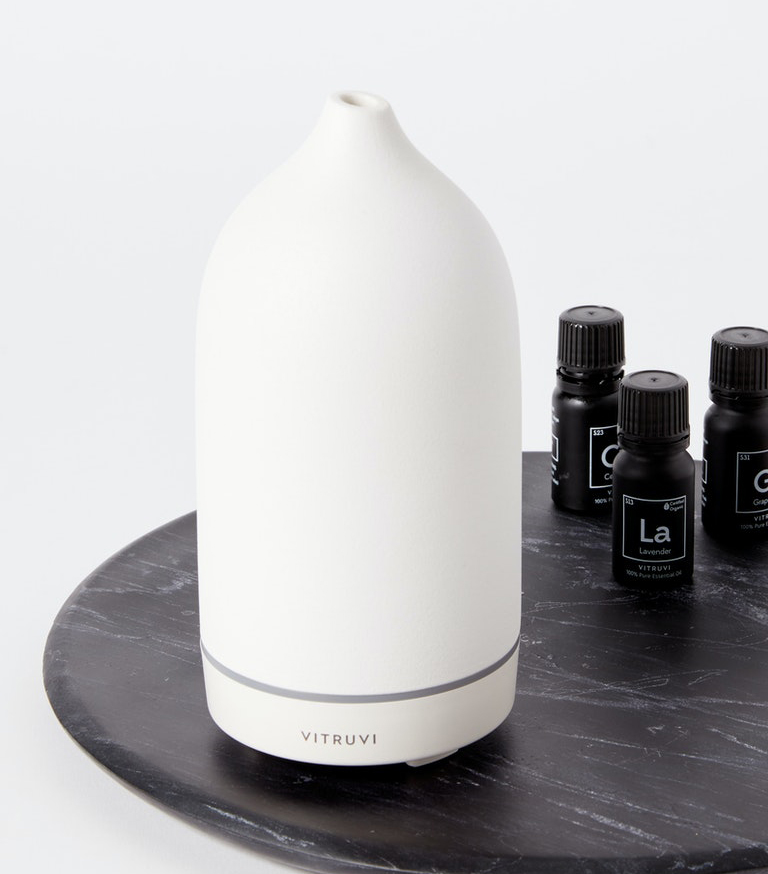
Aromatherapy can help. There are some essential oils that have a calming effect, like lavender and bergamot. A diffuser is an easy way to use essential oils.
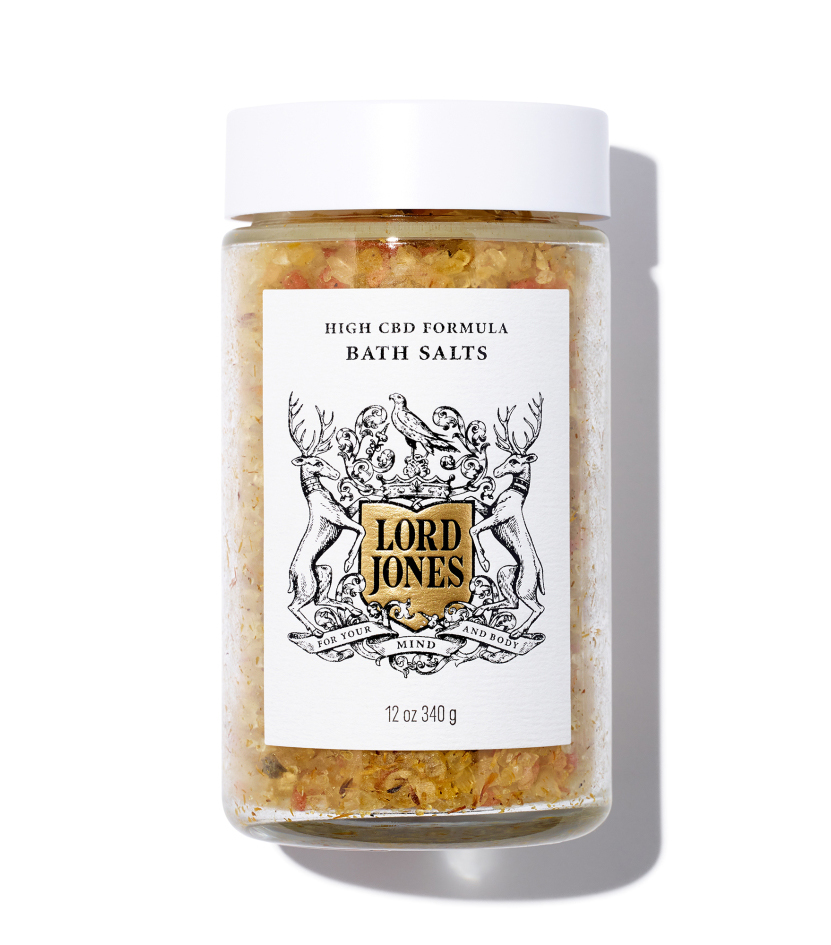
A bath is probably one of the best forms of self-care. This CBD soak also contains Epsom salt, pink Himalayan salt, calendula petals, and essential oils.
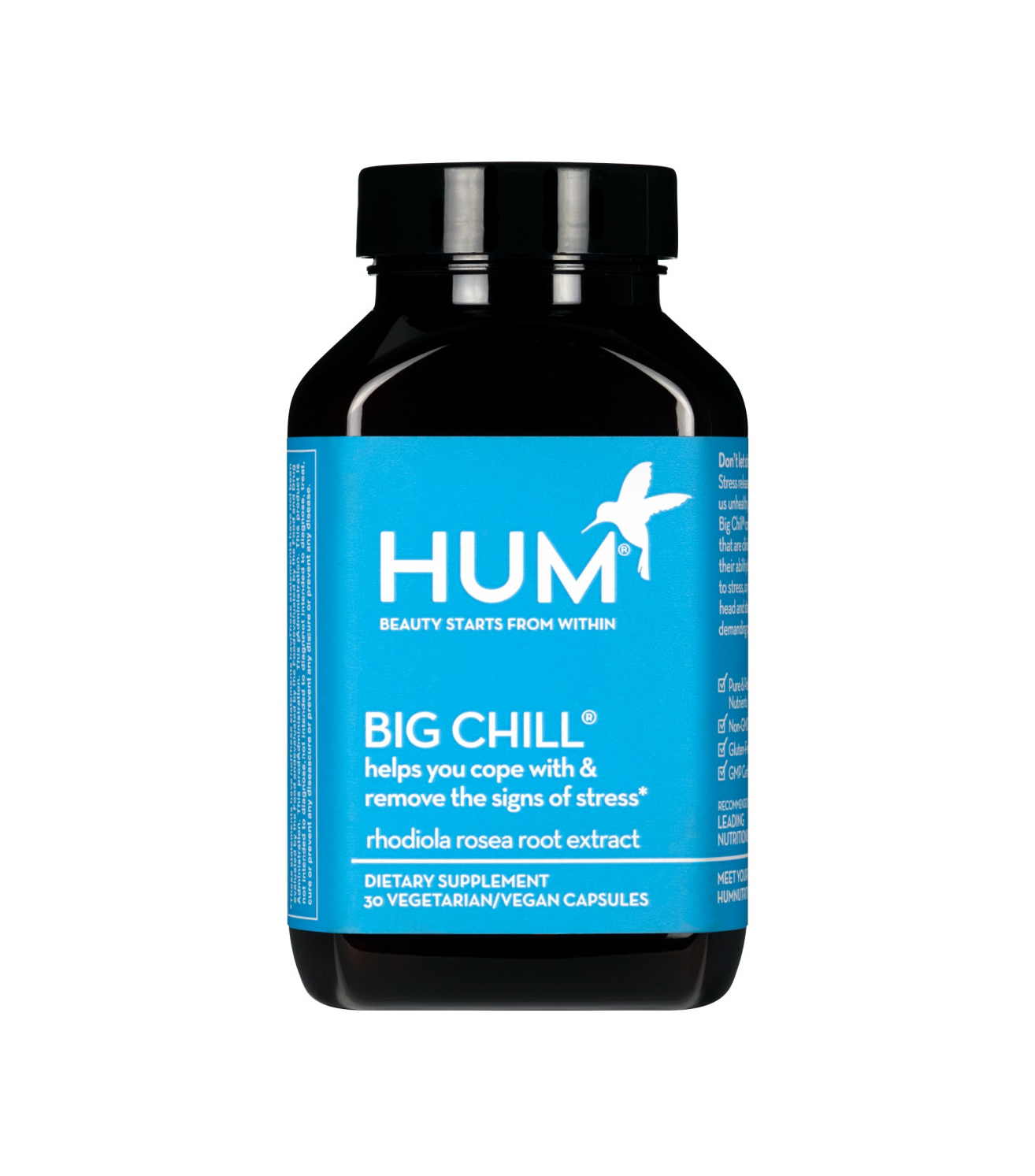
These supplements from Hum are formulated to help you stay calm and focused thanks to the adaptogenic plant, rhodiola. Take one capsule with food when you need it.
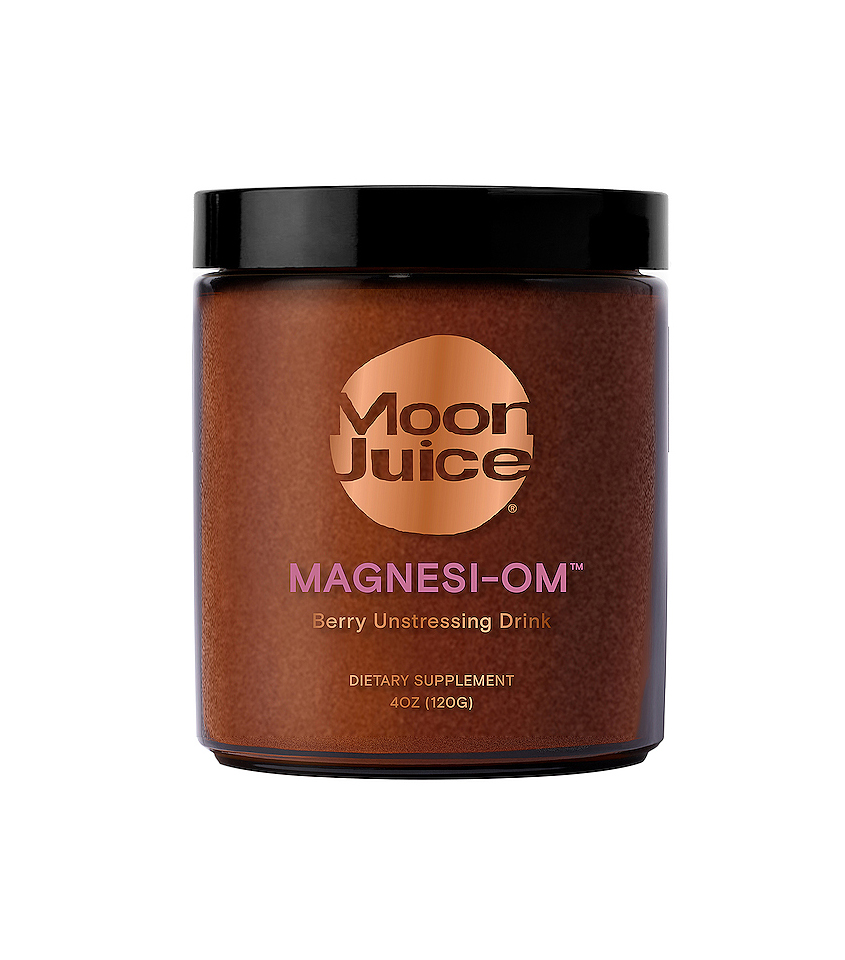
Add a teaspoon of this powder to your water before you go to bed, or whenever you need to de-stress. It contains magnesium and L-theanine to calm, improve move, and promote healthy digestion.
Next up: Eat These 7 Foods to Keep Your Stress Levels in Check
This article was originally published at an earlier date and has since been updated.
Disclaimer
This article is provided for informational purposes only and is not intended to be used in the place of advice of your physician or other medical professionals. You should always consult with your doctor or healthcare provider first with any health-related questions.